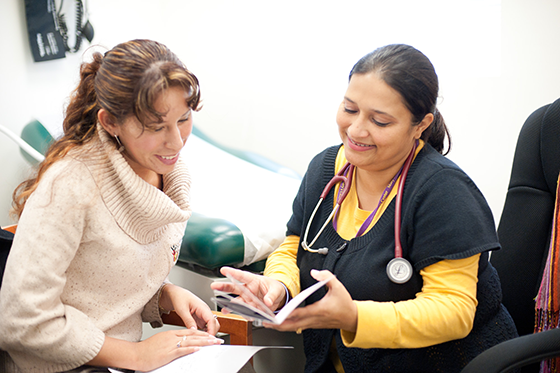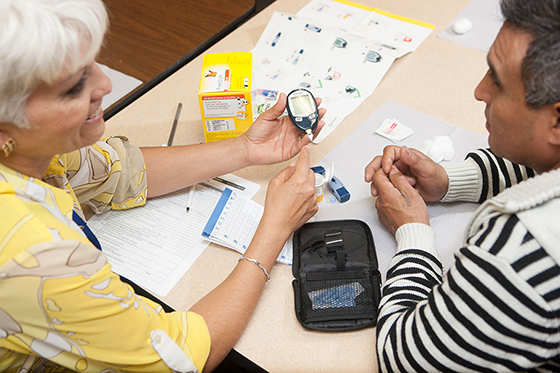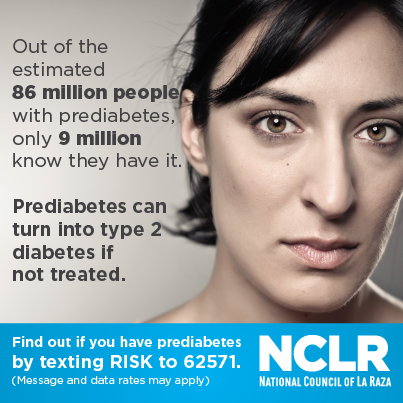Know Your Risk for Diabetes
November is Diabetes Awareness Month, a reminder to take a moment from our busy lives and assess our health and well-being. Experts say at least one-quarter of the 30 million people in the United States—more than seven million—who have diabetes simply don’t know they have this serious disease. When symptoms are silent, we must think about our risk factors and protect our health.
How can you learn whether you or someone you love is at risk for diabetes? The best approach is to have a clear and thorough discussion with your doctor, but here are some factors to consider:
- Prediabetes: If a health care provider has said you have prediabetes, it doesn’t mean you will automatically develop diabetes. But you should learn what steps to take—such as losing weight or exercising more—to avoid diabetes. The American Diabetes Association (ADA) offers detailed information about prediabetes in English and Spanish.
- Family history: If one of your parents, siblings, or grandparents has heart disease or diabetes, then you have a higher risk of developing diabetes. It is important to know your family’s medical history so you can share it with your doctor.
- Race/Ethnicity: Some racial and ethnic groups have a greater risk of diabetes. According to the ADA, the rate of diabetes among Latinos is almost double that of non-Latino Whites
- Age, weight, and activity level: As we get older, our risk for certain health conditions—including diabetes—goes up. Your weight and the amount of exercise you get are critical factors in determining diabetes risk. Take a quick online test; it is also available in Spanish.
- Diet and excessive sugar: Cutting back on sugary beverages (see below), limiting portion sizes, and filling half your plate with fruit and vegetables are all healthy choices. The U.S. Department of Agriculture has additional healthy tips and you can also learn from NCLR’s nutrition and wellness information.
Keep up with the latest from UnidosUS
Sign up for the weekly UnidosUS Action Network newsletter delivered every Thursday.


